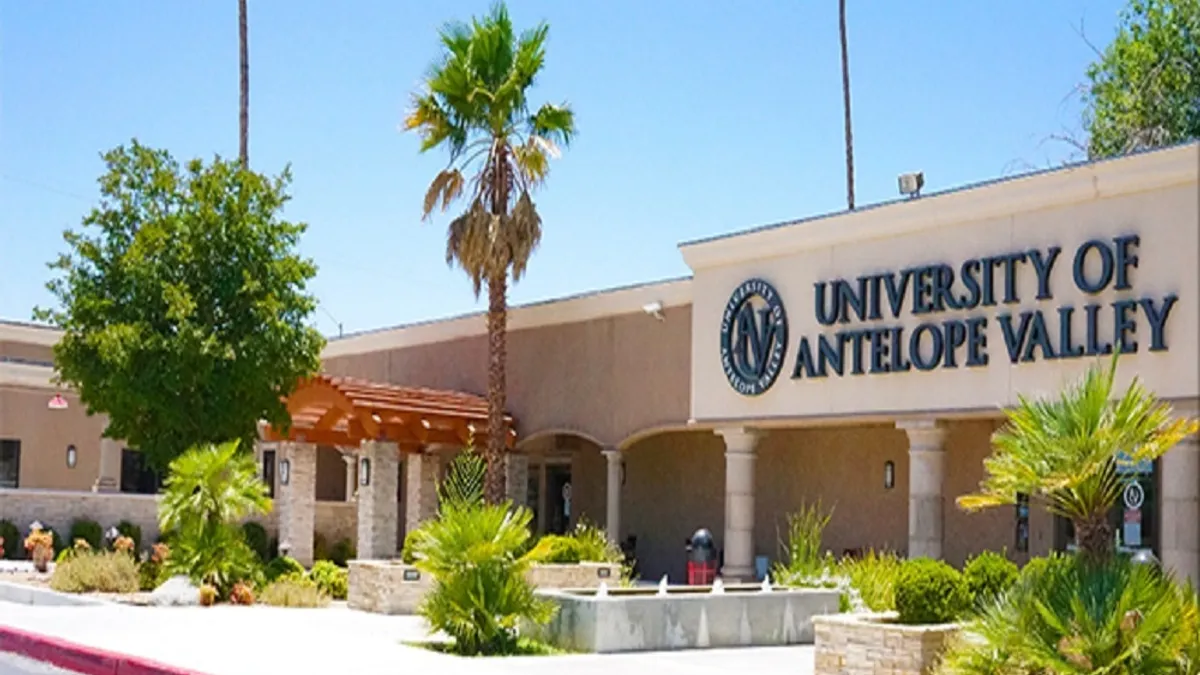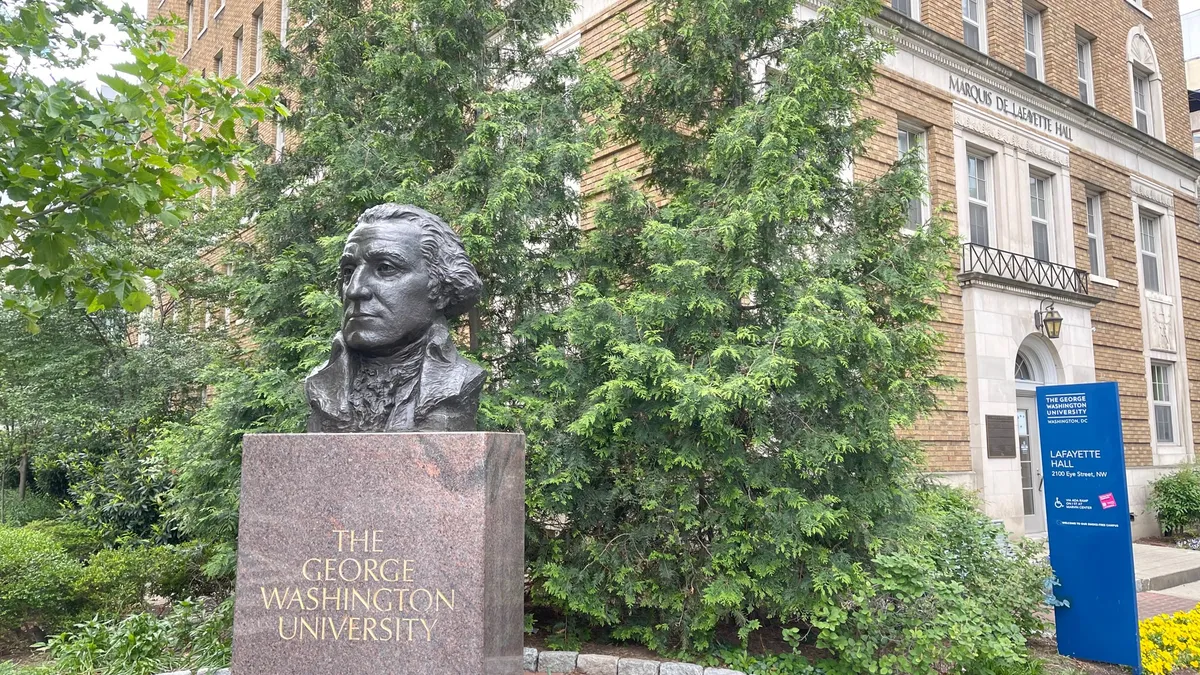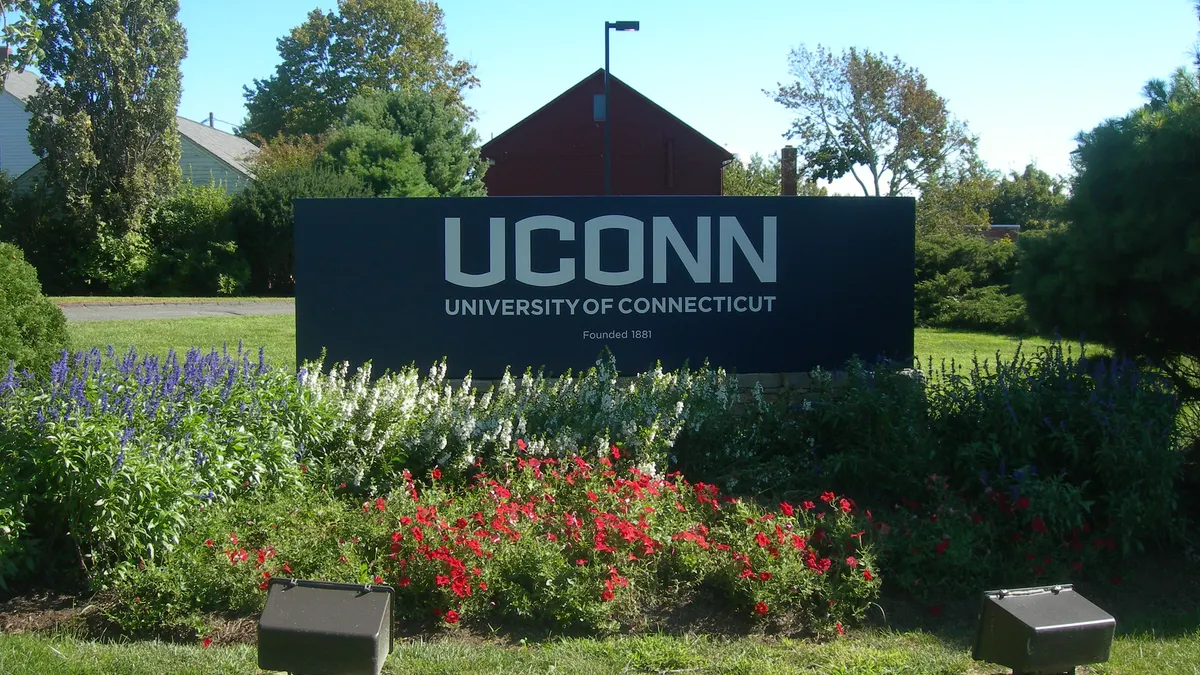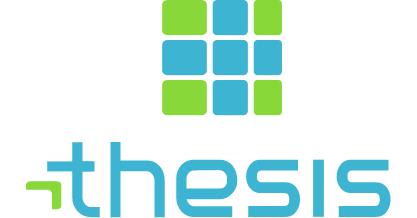The University of Antelope Valley’s accreditor put it on probation this month, finding the for-profit institution in California did not meet various standards, including budgeting and student outcomes.
WASC Senior College and University Commission, or WSCUC, raised concerns about “significant financial problems” the university has had for at least the past two years, the accrediting agency wrote to Tracy West, the university’s president.
Accreditors serve as gatekeepers for federal financial aid, without which colleges likely can’t survive. Thus, taking away accreditation generally spells a college’s demise.
The sanction will likely stir debate about the operations of for-profit institutions, many of which have been accused of misleading students about the quality of their programs and saddling them with ruinous debt.
The policy movement around for-profits is quickening, too, with the Biden administration in May reviving a regulatory proposal called gainful employment that would require career education programs to demonstrate that their graduates can pay off their debts to access federal aid.
Antelope Valley appears shaky in several areas, with WSCUC doubting the university could reverse persistent declines in student numbers. Despite the institution forecasting “optimistic near-term enrollment” trends, it “has provided no evidence that these projections are reasonable,” WSCUC wrote in its Aug. 22 letter.
Enrollment hovered at a little more than 500 students in fall 2022, falling from 894 in fall 2018, according to federal data.
Current Antelope Valley students aren’t faring well either, WSCUC contends, pointing to federal data showing first-year retention rates have slipped. Meanwhile, median student debt is rising and undergraduate earnings are “far below both WSCUC and national averages.”
WSCUC also dinged Antelope Valley for lacking consistent leadership, with positions including chief financial officer, governing board chair and vice chair going unfilled amid high turnover.
Antelope Valley officials didn’t tell WSCUC about these issues, the accreditor alleged.
WSCUC said the university hadn’t flagged its multiple resignations and severe budget challenges, meaning it hadn’t complied with the requirement to have “honest and open communication” with the agency.
West did not address WSCUC’s accusation of poor communication in an emailed statement Monday.
The statement said that the university is dedicated to rectifying WSCUC’s concerns, though they cannot “be swiftly resolved” given the complexity of the problems. West said the university has already taken steps to counter issues raised in WSCUC’s report, but did not go into any detail.
“We consider our responsibility to offer top-tier education to our students as a matter of great importance,” West said.
History lesson
In 2022, Genius Group, a Singapore-based ed tech company, announced it bought Antelope Valley from founders Marco and Sandra Johnson, who started it in 1997 as Antelope Valley Medical College.
The founders viewed the institution as an answer to a dearth of community CPR and first aid training.
Antelope Valley switched to WSCUSC in 2016 from its previous accreditor, the Accrediting Council for Independent Colleges and Schools, which had monitored the university since 2009.
ACICS — a notorious accreditor largely of for-profits, such as the failed ITT Technical Institute — has also faced troubles and is winding down operations by March 2024 after losing U.S. Department of Education approval. It had not met Education Department standards for years, the agency said.
Antelope Valley offers a range of undergraduate, graduate and certificate programs. But the Genius Group wanted to leverage it as a meta university — with a virtual duplicate of the college in the metaverse — that could provide global higher ed instruction.
This effort has so far not boosted Antelope Valley’s student numbers. And amid the enrollment downturn, Antelope Valley “has been reliant on substantial infusions of cash” from the Genius Group, the accreditor wrote in its letter.
However, the Genius Group now is battling financial woes of its own, and in U.S. Securities and Exchange Commission filings has expressed doubt about its ability to stay afloat.
The company had a net loss of more than $55 million in 2022, according to SEC documents.
In SEC filings, Genius Group attributed Antelope Valley’s problems largely to outside forces.
Enrollment attrition, for example, is often due to factors out of the company’s control, such as students enduring personal, financial or family constraints, Genius Group said in the documents.
It also said that the larger animus, and regulatory and legal actions, against for-profit colleges could bring down Antelope Valley’s reputation.
“The precise impact of these negative public perceptions on our current and future business is difficult to discern,” Genius Group said. “If these few situations, or any additional misconduct, cause all Edtech and online learning programs to be viewed by the public or policymakers unfavorably,” then they could hamper the university’s enrollment growth.
What does Antelope Valley do now?
WSCUC is requiring Antelope Valley leaders to meet with accreditor officials within 90 days. They can appeal the probation.
By Oct. 1, Antelope Valley must provide WSCUC a teach-out plan that details where students can transfer to finish their programs. Federal regulation requires this teach-out plan.
The federal Education Department is also monitoring Antelope Valley.
This year, the department reviewed Antelope Valley’s federal financial aid programs, resulting in 20 noncompliance findings, including of inadequate policies, consumer information requirements, and federal financial aid disbursements, WSCUC wrote in its letter.
An Education Department spokesperson said Monday that the agency does not comment on “institutional oversight activities” until outcomes have been officially communicated to a college.




















